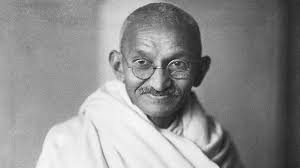
I am one of those who do not consider caste to be a harmful institution. In its origin, caste was a wholesome custom and promoted national well-being. In my opinion, the idea that inter-dining or intermarrying is necessary for national growth is a superstition borrowed from the West. Eating is a process just as vital as the other sanitary necessities of life. And if mankind had not, much to its harm, made of eating a fetish and indulgence, we would have performed the operation of eating in private even as one performs the other necessary functions of life in private.
Indeed the highest culture in Hinduism regards eating in that light and there are thousands of Hindus still living who will not eat their food in the presence of anybody. I can recall the names of several cultured men and women who ate their food in entire privacy but who never had any ill will against anybody and who lived on the friendliest terms with all.
Intermarriage is a still more difficult question. If brothers and sisters can live on the friendliest footing without ever thinking of marrying each other, I can see no difficulty in my daughter regarding every Mohammedan as a brother and vice versa. I hold strong views on religion and on marriage. The greater restraint we exercise with regard to our appetites whether about eating or marrying, the better we become from a religious standpoint.
I should despair of ever cultivating amicable relations with the world if I had to recognize the right or the propriety of any young man offering his hand in marriage to my daughter or to regard it as necessary for me to dine with anybody and everybody. I claim that I am living on terms of friendliness with the whole world. I have never quarreled with a single Mohammedan or Christian, but for years I have taken nothing but fruits in Mohammedan or Christian households.
I would most certainly decline to eat cooked food from the same plate with my son or to drink water of a cup which his lips have touched and which has not been washed. But the restraint or the exclusiveness exercised in these matters by me has never affected the closest companionship with the Mohammedan or the Christian friends or my sons.
But interdining and intermarriage have never been a bar to disunion, quarrels and worse.
The Pandavas and the Kauravas flew at one another’s throats without compunction although they inter-dined and intermarried. The bitterness between the English and the Germans has not yet died out.
The fact is that intermarriage and interdining are not necessary factors in friendship and unity though they are often emblems thereof. But insistence on either the one or the other can easily become and is to-day a bar to Hindu-Mohammedan Unity. If we make ourselves believe that Hindus and Mohammedans cannot be one unless they interdine or intermarry, we would be creating an artificial barrier between us which it might be almost impossible to remove. And it would be seriously interfere with the growing unity between Hindus and Mohammedans if, for example, Mohammedan youths consider it lawful to court Hindu girls. The Hindu parents will not, even if they suspected any such thing, freely admit Mohammedans to their homes as they have begun to do now. In my opinion, it is necessary for Hindu and Mohammedan young men to recognize this limitation.
Excerpted from Young India, Vol III. The 70th death anniversary of Mahatma Gandhi was observed on January 30.
Mahatma Gandhi







